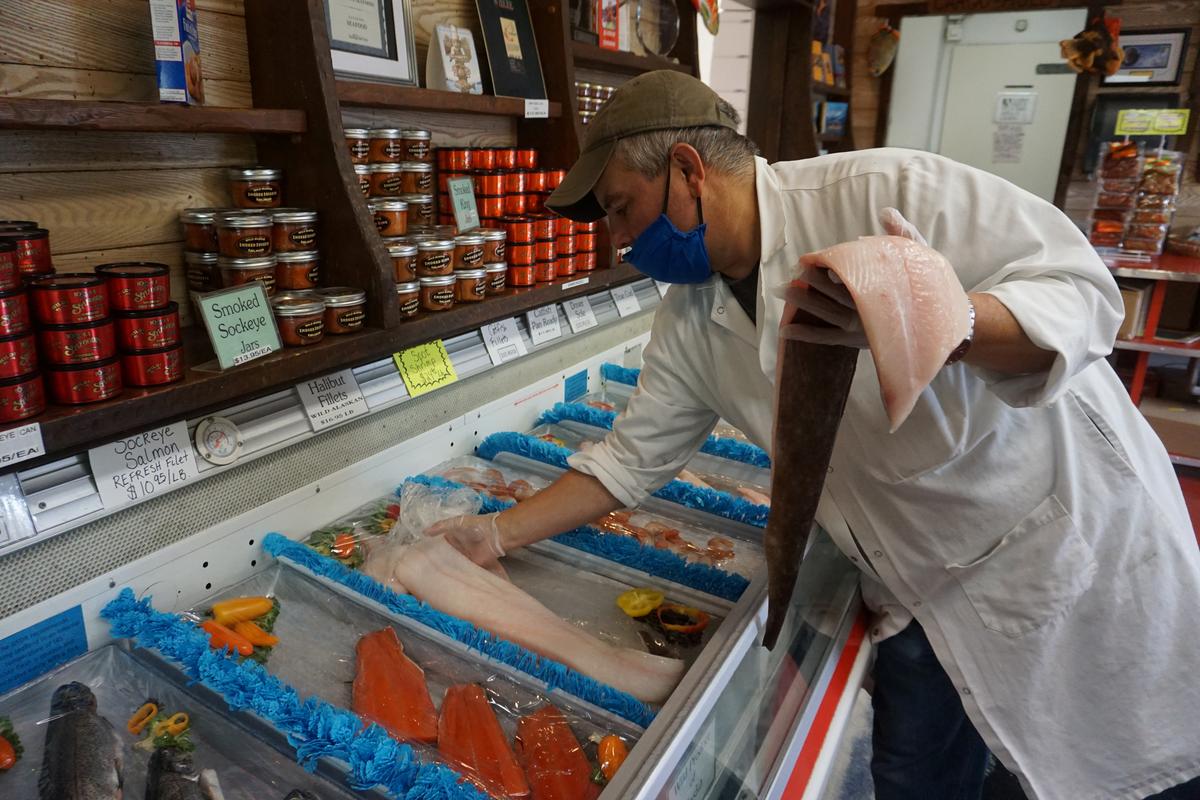CAPE COD, Massachusetts/LONDON (Reuters) – Frozen fish sticks and canned salmon have made a comeback as the coronavirus crisis keeps people home, forcing a change of tack for the fishing industry that usually turns to restaurants from Paris to New York and Shanghai to serve their fresh seafood.
Tito Marquez, the manager of 10th and M Seafoods, places halibut fillets on a display case in Anchorage, Alaska, U.S. April 23, 2020. REUTERS/Yereth Rosen
Fishing crews from Alaska in the United States to Zhejiang in China have been battered by lockdowns that have shut fine dining halls and fancy hotels, leaving customers to stock up from supermarkets rather than pick a platter from a table menu.
Manhattan eateries that draw in the Wall Street crowd were a major market for Jake Angelo’s razor clams, a delicacy dug from the mud along the shores of Cope Cod, Massachusetts.
But prices have hit rock bottom and shut down a vital source of income for the fisherman who has a boat named Ripped Tide.
Angelo said the whole seafood industry was on its backside, although he used much saltier language to voice his anxiety.
“People are scared of handling oysters and clams at home. They want the restaurants to do it,” he said. “And as oysters get bigger, there’s not a market, because they’re too hard to handle. But you can’t put them on hold and tell them to stop growing.”
Scientists say the $161 billion global industry’s travails could offer one bright spot: the downturn may give some depleted fish stocks a brief chance to recover, as they did in the World Wars, although at that time fish had years of relief not months.
Yet, for boat owners, seafood firms and others involved in the industry, which produced 178 million tonnes of fish worldwide in 2019, the immediate challenge is to survive until demand returns or to adapt swiftly to cater for new tastes.
“There is no point going out to fish and then not be able to sell,” said Bruno Margolle, president of the French fishing federation FEDOPA and co-owner of a family trawler in Boulogne.
In France and Britain, fleets are trying to stagger landings to avoid flooding the market and fe

